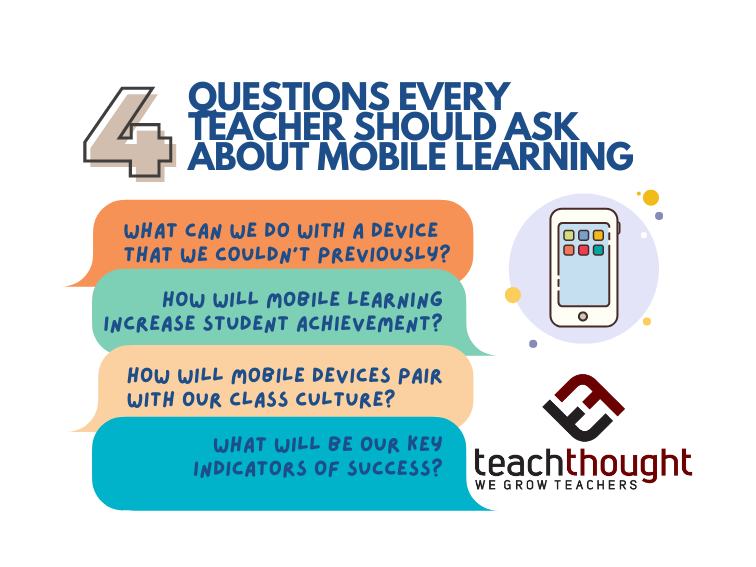
What Questions Should Teachers Ask About Mobile Learning?
contributed by Justin Chando, Founder & CEO, Chalkup
Untethered from desks, a tablet represents personalized learning potential for a student in ways we’re just catching up to.
Truly, the promise of mobile is extraordinary. With every historical date ever needed for World History 101 suddenly contained in the back pocket of your average American eighth-grader, we find ourselves in a new environment for learning. And an awesome one.
As I see an increase in creative ways to keep learning alive after class, I’m interested in thinking about what we should be doing to ensure schools can reap the full benefits of mobile. Put simply, how do we do mobile learning programs right? How do we fully tap the potential of a device in the hands of a student?
I’m not interested in seeing the same classes and materials we had a decade ago (but now with Chromebooks!) I’m interested in learning from classes where the introduction of a device offers a level of personalized learning and connection to school that elevates a student’s experience in ways we couldn’t without technology.
On the front end of this conversation, what I’ve come up with are questions. Specifically, questions I think we should be asking at the beginning of mobile learning initiatives related to learning gains and learning culture. Here’s what I came up with.
4 Questions Teachers Should Ask About Mobile Learning In Their School
What can we do with a device that we couldn’t previously?
My instinct is to first talk out the basics. What do we get by adding devices to a learning environment?
This is the litmus test for ensuring we’re not adding technology just because we can. This question envisions what learning gains we can make with a device that we couldn’t without. The same assignment, activity, or exam on paper – done instead with an iPad – doesn’t seem like reaching new heights to me. Does it?
How will mobile increase learning gains for students?
Question number two is about learning gains. What I want to know is if we can actually create experiences with technology that will see students walk away with more knowledge applicable to the real world than they could have otherwise.
With a tremendous amount of rich content available to achieve this end, I wonder where the value is in digitizing the paper versions of assignments from years past. I’d imagine to make real learning gains, we must start thinking about new types of content better suited for this vastly different educational terrain.
How will devices pair with our current class culture?
Closely related to learning gains is examining class culture: as we adopt devices, we adopt the ability to access dates, equations, and definitions in seconds.
This isn’t an argument for doing away with exams or learning key skills, it’s acknowledging that if you or I wanted to know what year Richard Nixon was born, we’d probably pull out our phone and Google it. Why would we want a student to memorize that information? And what should we be doing instead of asking them to do that?
The one thing we can’t Google are authentic experiences and meaningful discussions. I would imagine that prior to starting a mobile learning program, we’d want to consider how to balance the power and potential of new devices against the supremely important role of the educator, asking ourselves how we’ll build these experiences, devices in tow.
What will be our key indicators of success?
This is a tough one. What really are the indicators of a successful mobile program? Test scores? Levels unlocked in the gamification of a lesson plan? Fluency across a range of programs? Discuss!
While I might not have answers to all of these questions yet, I like where the conversation is going. These are the topic areas we need to poke at if we want to build more impactful mobile learning initiatives. Look forward to learning more from everybody.
Justin Chando is the Founder and CEO of Chalkup, the world’s first class collaboration platform. Their app for iOS is now available; 4 Questions Every Teacher Should Ask About Mobile Learning; adapted image attribution flickr user flickeringbrad
